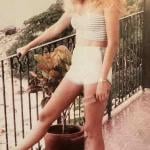I like this piece by Tom Howard, a classics teacher who is looking at how modern students respond to Homer:
But then we came to Homer. This old blind bard addresses himself to his poetic task with immense energy. And a reader does not get far into The Iliad before he finds himself hailed with the sheer zest with which Homer extols the magnificence, nobility, courage, and prowess of the heroes on both sides of that war. In the Greek camp, we find Agamemnon, Menelaus, Achilles, Ajax, and a host of others, who are, to a man, breathtaking in their splendor. Likewise in the camp of their enemy Troy, we find Aeneas, Troilus, Paris, and, towering above all the Trojan heroes, Hector. Heroism is unabashedly extolled, and modern readers can at least admire this quality, even though the idea has suffered under the skepticism and even cynicism that mark “modernity.” Warrior heroes are not popular in the myths presiding in our own epoch, but it would be a pitiable man whose imagination was altogether impervious to the spectacle of real heroism.
But there are some qualities at work in the air of this epic that might encounter stony indifference on the part of modern imagination. For one thing, holiness is in the air. Blood sacrifice is in the cards. Men slaughtered heifers or sheep or cattle at every juncture — as many as a hundred cattle in the famous hecatomb. And if you neglected this pious duty, the consequences were likely to be heavy. Apollo or Hera or Poseidon would fly into a fit of pique and visit condign punishments on your head. The smoke of the sacrifice must go up — but to whom?
You’ll want to read it all
UPDATE: Speaking of Holiness and Glory:
Remarkable, heroic, holy and humbling.
A way to help – check this out
UPDATE II:
And this report is very sobering. Don’t miss it.











